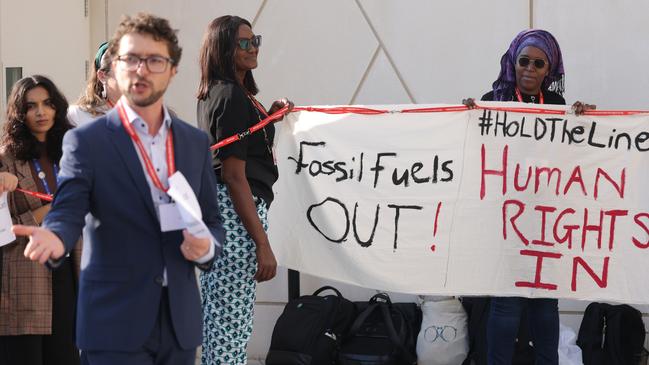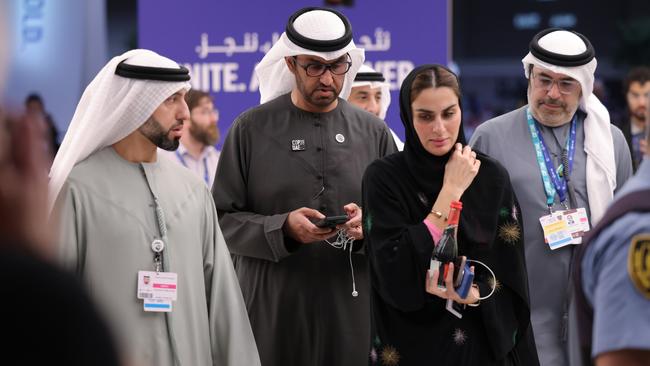COP28: Half way there and a long way to go
If Australia wins its bid to host a COP in 2026 it has an incredible opportunity to shepherd the world forward and showcase our progress.

With the first half of the COP28 climate summit in Dubai done, and the usual jitters under way over whether, and when, it will reach a reasonably successful conclusion, it’s a good time to take stock of what it all means for Australia.
These Conferences of the Parties combine working negotiations on legal texts that must command the consensus of 198 parties to be adopted; a high-level summit where heads of government and CEOs rev each other up to higher climate ambition; a platform for side deals among coalitions of those willing to go faster than the minimum consensus; and a meeting place where tens of thousands of scientists, businesspeople, officials, advocates and journalists exchange views and learn about what is happening in every sector and every economy in the fight against climate change.
They are extraordinary events, and if Australia wins its bid to host one in 2026 we will either have an incredible opportunity to shepherd the world forward and showcase our progress – or be the dog that caught the car. Which it is depends in part on our progress in the meantime towards a prosperous, competitive and fair net-zero economy.
COP28 started with a bang, with the UAE cementing immediate agreement to start up a new fund to be housed in the World Bank that will help address climate-related loss and damage felt by developing countries.
An impressive initial round of pledges will help capitalise the fund, but much more will be needed over time. A single climate-pumped superstorm or a slow-onset loss of land to sea level rise can sap a big chunk of the GDP of nations like our Pacific neighbours.
Neither Australia nor other developed countries will accept liability for those losses, but we’ve committed to helping manage them.

The COP has also seen early political declarations, joined by Australia, in support of tripling global renewable energy and doubling energy efficiency. A big question is whether the whole COP will agree to these goals, along with fiercely contested words on the phase out (or down) of unabated fossil fuels (or just fossil fuels full stop).
We’ll see, but committing is easier than achieving. Delivery at home matters.
Australia has the potential to blow right past a tripling of renewables. The most ambitious visions of our clean energy superpower opportunities in clean metals, minerals and ammonia would see us generate more than 60 times more renewable energy than today.
That future depends in part on global demand for clean products – which, judging by the national and industrial commitments on display in Dubai, will grow rapidly but be fiercely competed for.
But it also depends on our ability to build. Major recent policies including the Capacity Investment Scheme will help secure investment decisions. However if we can’t navigate social licence for essential but annoying infrastructure like transmission lines, we are going nowhere fast.
Another side agreement saw a smaller but significant group of nations commit to tripling nuclear energy. Nuclear is unlikely to play much if any role in an affordable future Australian electricity system, but you never know. A watching brief makes sense – as does removing the total ban and replacing it, in due course, with proper regulation.
More than a 100 issues are under negotiation at Dubai, but the biggest item this year is surely the Global Stock Take. Nations are deciding how to summarise the important but insufficient progress towards the temperature, adaptation and finance goals of the Paris Agreement.
And critically they are deciding what kind of push to give each other to close the gaps in their next round of self-selected climate targets, covering 2035 and due over the next 18 months.
The Global Stock Take is a big deal. It can be a springboard for increased action and implementation, and a polestar for business as much as government in setting course for the next few years. But the clashing priorities, sensitivities and circumstances of different negotiating blocs make it worryingly possible that we will get a weak signal from Dubai.
COP President (and Abu Dhabi National Oil Company head) Sultan Al Jaber has done a remarkable job so far of building momentum and a successful conference remains probable. Whatever happens at COP28, the onus for next steps will fall on Australia and every other nation. We have til early 2025 to decide what more we can commit to; how we will deliver it; and how we will grow prosperity and strengthen our nation in the process. Electricity policy hogs attention, for good reason, but the current Carbon Leakage Review is just as important, seeking solutions to reconcile steep emissions cuts with competitive industries.
Dubai is a place for deals. But delivery happens at home.
Tennant Reed is the Ai Group’s director of climate change and energy, representing Ai Group members at COP28



To join the conversation, please log in. Don't have an account? Register
Join the conversation, you are commenting as Logout